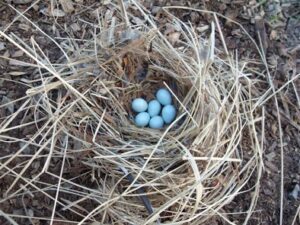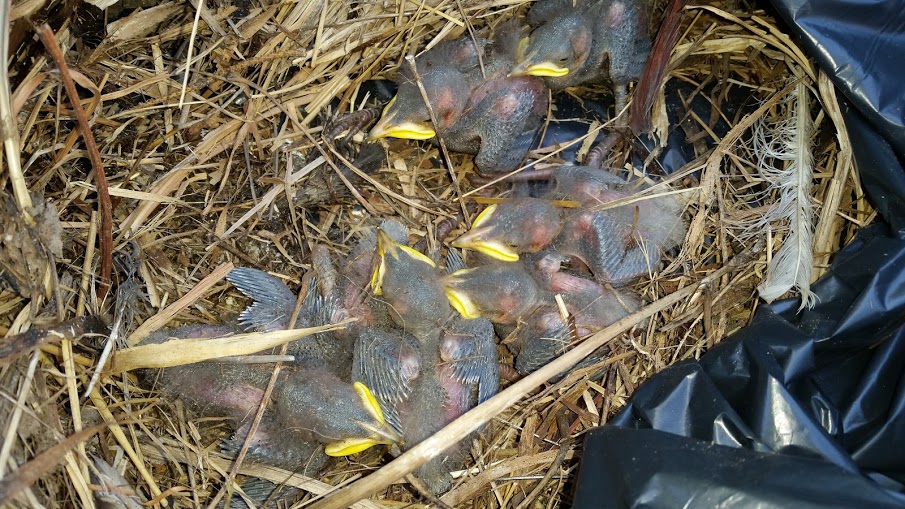Almost everyone has heard a tale or two about mother birds abandoning their babies if their nests are touched.
Well-meaning people have believed this myth for a long time, hesitating to pick up a fledgling if it’s on the ground or a nest that has fallen out of a tree. What if that nest is somewhere on the exterior of your home? Birds can nest anywhere from the outside dryer or attic vents to inside soffits and rafters. While you should absolutely leave birds and their nests to the Milwaukee professional wildlife removal team, it isn’t only because of the threat of breaking up a bird family.
Let’s clear up some of the confusion about whether mother birds reject their young if a human touches its nest.
The Bird Is the Word
Like most everything about wildlife, this issue of birds forsaking their babies is complicated. For starters, not all species react the same when their nests are disturbed. Predatory birds with long lifespans, such as hawks, may be more sensitive about a nest than small birds with short lifespans, which may be more alert to potential predators and willing to give up their temporary homes.

Pass the Smell Test
Another part of the abandonment myth is that birds can smell if a human has touched their nests or their babies. You have nothing to worry about here; birds don’t have much of a sense of smell. Outside of scavengers such as turkey vultures, most birds would not be able to detect any changes based on olfactory signs alone. It’s more about a change in the nest itself rather than the human scent.
Robbing the Cradle
Mother birds are more nurturing than they often get credit for, but like most animals, they are most concerned with survival, not only their own but also their little ones’. If a mother bird has just laid her eggs, she may be more likely to abandon the nest when threatened, because she assumes that a predator will return and finish the job. However, if she has hatchlings or fledglings that she is feeding or teaching, she has a different level of attachment. In that case, a mother bird is often quite protective and may try to find a nest if it is moved or move her babies to a safer location when the coast is clear.
Professional Moving Company
Now that you understand more about bird behavior, you may be curious how this applies to a bird’s nest somewhere on your house’s exterior. Birds that make themselves at home on your home can be moved, but you shouldn’t be the one to do it. Working with professional wildlife removal in Milwaukee like Skedaddle assures a humane and safe approach to bird relocation.
In most instances, the team can carefully move the nesting material and any hatchlings to an open container right next to the original spot, keeping everything as undisturbed as possible. The mother bird should be okay with this new temporary nest, and the technician can continue to monitor the success of the move until the time the fledglings have left the nest. Once that happens, the team comes back to seal off openings or cover vents to prevent a repeat performance in the future.
Just Say No to DIY Wildlife Removal in Milwaukee
Birds can carry germs and parasites, which can be found in their nests and droppings. If you try to move a nest on your own, you may be exposed to some pretty nasty bacteria, not to mention you may unwittingly cause the mother to desert her young. Leave the move to Skedaddle Humane Wildlife Control, which has the trained staff and the proper equipment to safely relocate a bird family with the least amount of intrusion. Contact us if you need help with birds or any other wildlife that is too close for comfort.



